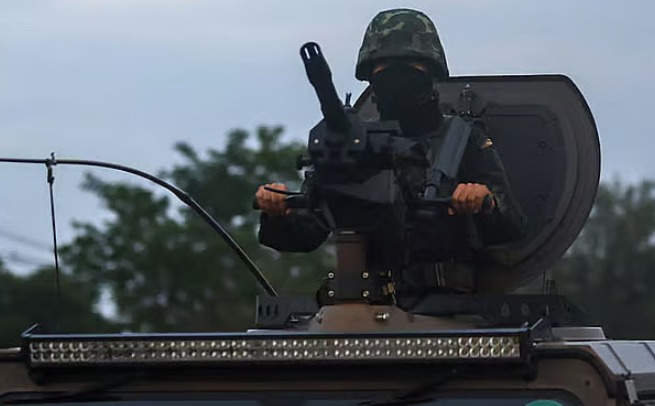Desk Report,
‘Bangla Blockade’ begins, capital at a standstill
The ‘Bangla Blockade’ program was launched on July 7 last year under the banner of the anti-discrimination student movement. The students’ program, demanding the abolition of the quota system in government jobs, brought the capital city to a standstill. Highways were blocked in various parts of the country, including Dhaka.
‘Bangla Blockade’ begins, capital at a standstill
The central program was in Shahbagh, and roads were blocked in eight places in Dhaka alone. A section of the students went from Shahbagh and occupied the intersection of the Intercontinental Hotel next door and went near Karwan Bazar.
Follow

The ‘Bangla Blockade’ program was launched on July 7 last year under the banner of the anti-discrimination student movement. The students’ program, demanding the abolition of the quota system in government jobs, brought the capital city to a standstill. Highways were blocked in various parts of the country, including Dhaka.
The central program was in Shahbagh, and roads were blocked in eight places in Dhaka alone. A section of the students went from Shahbagh and occupied the intersection of the Intercontinental Hotel next door and went near Karwan Bazar.
On the first day of the ‘Bangla Blockade’, the entire capital came to a virtual standstill. The coordinators specified one demand of the movement. That was to abolish the unreasonable and discriminatory quotas in all grades of government jobs and pass a law in parliament to bring the quota for the backward classes as mentioned in the constitution to the minimum level.
After a four and a half hour road blockade in Shahbagh, coordinator Nahid Islam announced the same program again from 3 pm the next day on July 8. In addition to continuing the student strike program by boycotting classes and exams in all universities and colleges of the country for an indefinite period, blockade programs were announced on various important roads. Nahid Islam said, ‘Today (July 7) we have gone from Shahbagh to Karwan Bazar. Tomorrow we will cross Farmgate.’
The ‘Bangla Blockade’ in Shahbagh saw significant participation of female students. At that time, Umama Fatima organized the female students at the Poet Sufia Kamal Hall of Dhaka University. On the occasion of the anniversary of the movement, she told Prothom Alo, “On July 7, we girls went to Shahbagh with a procession from the hall. There were processions and slogans all day long. The night before the blockade, the girls wrote placards together at the poet Sufia Kamal Hall of Dhaka University, made preparations – there was a sisterhood in all of it. Some would bring banners, some would store the flags, some would store the mics. In other words, everyone worked together. It is a very positive thing. Now that thing doesn’t exist anymore.”




